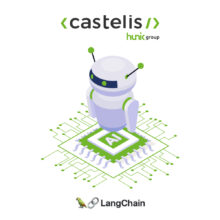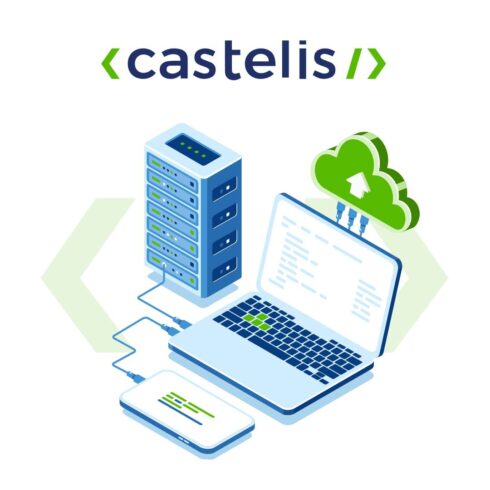
Cloud, which solution to choose for your company ?
There are different cloud solutions, depending on the needs of the companies and the desired services. In all cases, the cloud refers to servers accessible via the Internet, as opposed to on prem, local servers.
Of course, each company evolves in its own context with its strategy, regulations and challenges. Thus, there is no single answer, no one cloud solution that is universally better than another. In this case, which cloud should you choose for your company ? On what criteria should you choose your cloud solution ?
How to choose a good cloud ?
For a company, more than a storage space, the cloud allows to host and run software, web applications, databases, sites and thus to build all or part of the company’s information system. In addition to making applications accessible from any device connected to the Internet, it allows you to get rid of server maintenance for example, managed directly by the cloud provider; or to control the costs related to your IT infrastructure.
In this way, the cloud is ideal for both small companies that do not have the means to manage their own infrastructure, and for large companies that want to gain flexibility and evolve on modern technologies.
What are the important criteria for choosing the best cloud ?
Data security and protection
In order to ensure the security and protection of the company’s data, it is advisable to learn about strategic and regulatory selection criteria.
Cloud compliance according to RGPD, ISO or PCSI standards
The storage of data must correspond to the regulations in force in the country, as well as to the company’s own rules. Thus, the location of data hosting is of paramount importance, often underestimated by companies.
In France, you must apply the laws relating to the protection of personal data and the RGPD. The same is true for companies outside Europe, but with a European customer base. For this reason, the applicable law is the one of the users’ country and not the country where the company is based. This is what currently poses a problem for Google via its Google Analytics solution whose data processing is not compliant with the RGPD.
Choose a real accompaniment towards the compliance of your cloud environments. Read your cloud provider’s terms and conditions carefully to make sure they meet your specifications.
The security level of the cloud
Is it a public or private cloud ?
What type of encryption is used? What guarantees does the provider offer?
In addition to the security processes put in place by your cloud providers, it is also up to your company to adopt an appropriate governance policy, and to put in place the appropriate security tools, such as Cloudflare solutions for example.
The backup policy
Backups must be regular and include a system of data redundancy to continue the company’s activity in the event of a problem.
When it comes to backups, checking the quality of the procedure alone is not enough. It is also wise to ensure that the servers storing the backups are not all located in the same datacenter. Otherwise, in the event of destruction, such as in a fire, all data is lost.
Similarly, for off-site data storage, it is important to ensure that the datacenter complies with the regulations applicable to the company.
The reputation of the cloud provider
Will the selected cloud be accepted by your customers? If it has a bad reputation or is unknown, it may not inspire confidence and negatively affect your company’s brand image in a lasting way. Surrounding yourself with the right partners is therefore essential.
At Castelis, we have a soft spot for Microsoft Azure, AWS and GCP cloud solutions, references on the market.
Performance and use of the cloud
In addition to security and compliance issues, choosing the right cloud involves studying the range of services offered, as well as the performance of the whole. We are therefore interested in certain major characteristics.
The cloud’s storage capacity and scalability potential as well as its pricing policy
Is it possible to manage the available space in a flexible and quick way ? Do you only pay for the services you need ? If you need more space or more services, is the choice of this cloud provider always the most profitable ?
The possibilities of collaboration and integration with the company’s tools
Ideally, the cloud provider should offer a migration and set up of your infrastructure to the cloud. Your cloud provider should offer all the services your business needs, such as legacy modernization, security, cross-cloud…
The chosen solution must also allow for easy integration of third-party tools. Your company works with software, web applications, sometimes even provided by suppliers and partners… All of them are therefore not hosted in the same place, not all of them are even hosted in a cloud, and yet they must be able to work together, share their data, allow process automation, and serve the overall performance of the organization.
The solution you choose must therefore allow you to work in hybrid mode if it suits your needs. Let’s take an example from the field of photo or video editing. For these professionals, it is faster and less expensive to keep data stored locally in the company to work efficiently. Only the final files need to be stored in the cloud. So they need access to a hybrid system.
The type(s) of architecture and cloud services needed
The cloud allows to design its IT infrastructure in a more or less advanced way. Depending on its needs, a company can request different types of cloud services : IaaS, PaaS, SaaS, microservices… Just like opting for a public, private, hybrid cloud…
It is therefore important to identify your needs in order to choose the right service and the cloud provider most likely to provide you with satisfaction.
Far from being limited to the choice of supplier, choosing a cloud solution involves determining the specifications, taking the time to study the real capacity of service providers to meet them, and even considering the possibility of using different clouds for different needs, and therefore designing a hybrid cloud architecture.
Need help with your cloud architecture ? Don’t hesitate to ask Castelis cloud experts to assist you on a daily or occasional basis !
Voir plus de Actualités
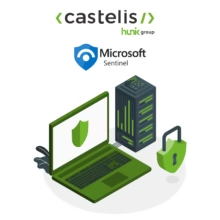
Why Microsoft Sentinel is Essential for Cyber Threat Management: A Practical Guide for CIOs
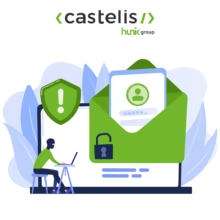
Top best practices to improve email security with DMARC
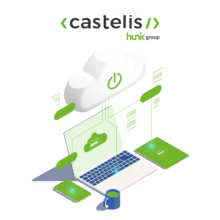
Cloudflare Zaraz Guide: Manage your third-party scripts at the Edge for better web performance
